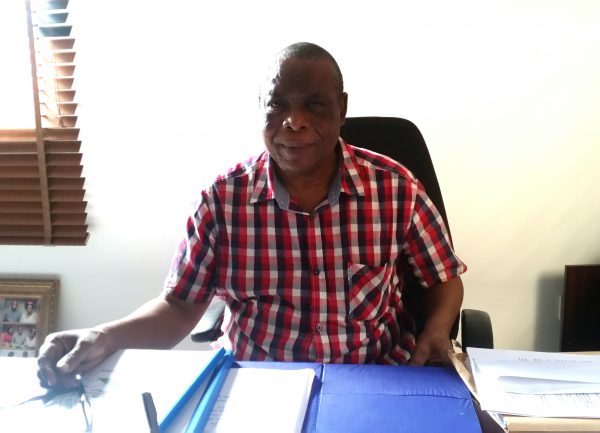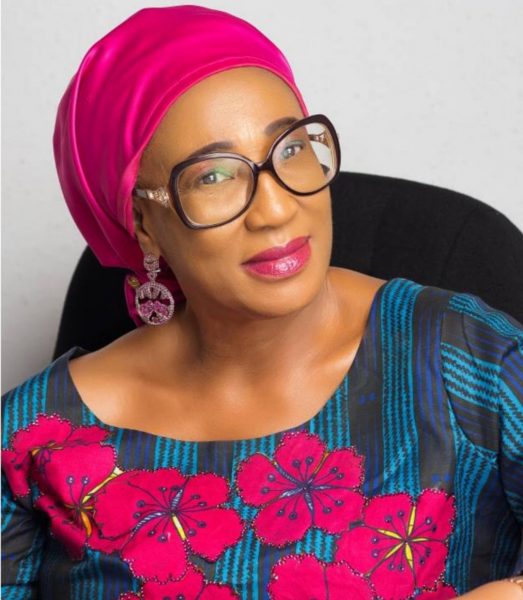How FG Can Ease The Burden On Nigerian Shippers – Nicol
By Kenneth Jukpor
Rev. Jonathan Nicol is the President of Shippers Association Lagos State (SALS). In this exclusive interview with MMS Plus, he shares his thoughts on the current state of shipping activities in Nigeria; highlighting the bottlenecks at the nation’s ports and proffering solutions to these problems. Enjot it:
Nigeria’s port system is frost with many challenges today ranging from infrastructure deficits to complex procedures and corruption which has eaten deep into most operators. What’s your appraisal of the sector?
Let me start by commending the Federal Government for allowing us play our role in facilitating trade through the import and export regimes. As far as Shippers Association is concerned, we would really work with the government and we would assist advising them on issues that can be simplified to make traders happy in the country. It is more appropriate for Nigerian shippers and traders to trade in their country than to be forced to go to other countries. Surprisingly, as shippers we deal with other countries and we don’t have problems over there except in Nigeria.
Nigeria should simplify the trade procedures within its terrain. Nigeria is a beautiful country, blessed with natural resources as well as human resources. We have dynamic hardworking and optimistic people. People who don’t consider the weather to discover if is harsh or threatening, they go about their businesses against all odds. These people deserve to be encouraged by the government. These are people who don’t even collect government’s monies. They do business with private sector funds. The government should be keen to make the processes better because this would allow more people do business and guarantee more duties to be collected by the government.
As far as Shippers Association is concerned, we would really work with the government and we would assist advising them on issues that can be simplified to make traders happy in the country. It is more appropriate for Nigerian shippers and traders to trade in their country than to be forced to go to other countries. Surprisingly, as shippers we deal with other countries and we don’t have problems over there except in Nigeria.
Hence, Nigeria should simplify the trade procedures within its terrain. Nigeria is a beautiful country, blessed with natural resources as well as human resources. We have dynamic hardworking and optimistic people. People who don’t consider the weather to discover if is harsh or threatening, they go about their businesses against all odds. These people deserve to be encouraged by the government. These are people who don’t even collect government’s monies. They do business with private sector funds. The government should be keen to make the processes better because this would allow more people do business and guarantee more duties to be collected by the government.
Maritime stakeholders have attributed the excesses of Customs officers to the fact that the Federal Government gives them revenue targets. Should the government continue to set these revenue targets for the Service?
Last year the Nigeria Customs Service (NCS) realized over N1trillion and they celebrated it, however this sector can be harnessed to produce over N3trillion annually for Customs and about N7trillion to N8trillion for the entire sector. We believe that the import and export policies have to be simplified. I recall when Gen Ibrahim Babangida (Rtd) was the Head of State; he made a projection for about ten years with stability in the tariff. While there was a persistent increase in the tariff of certain goods, the tariff for some basic goods remained static. At that time there was nothing like arbitrary changes in Customs duties because there was clear projection on the cost of clearing goods. That was a healthy business environment for shippers who made a lot of money at that time.
Today, we have somersaulted policies and the tariff suddenly became so harsh for traders. At that time the budget for the following year was prepared and concluded before the next year and the Minister of Finance explains the critically aspects especially import duties and the import and export prohibition lists. Today, we are in the second quarter of the year 2018 and the budget for the year hasn’t been passed. Everybody is waiting and certain businesses can’t go on until that budget is passed. We haven’t really understood the reason for this recurring delays but whatever it is, the government should correct it. These issues, when addressed would provide a better economic environment for the government to generate revenue via customs duties and other avenues.
As a shipper, how do you navigate through the tough business environment especially at the ports?
As a trader, the system in Nigeria doesn’t give you a choice but to take part in the corruption because people have created authorized channels to siphon monies from the importer. You don’t have a choice, remember, if you took loans from a bank to go into business, the bank would be waiting for you to pay and with the interest of course.
These harsh conditions made shippers begin to load containers very well, so that by the time you have paid all the transactions, you can go to the open market and make profit especially in an environment where you also have to compete with the smugglers. It becomes very difficult for the shipper to even make profit. The shipper pays 5% Value Added Tax (VAT), the shipping company collects another 5%, terminal operators also collects 5% and by the time you leave the ports you find it difficult to recover your capital, and as a result a lot of people have dropped out of the trade adding to the level of unemployment in the nation. You expect the government to do something to solve these problems especially as the government cannot provide alternative jobs for these people. If the private sector cannot absorb people and pay them, then the government has a big problem. This sector takes as much as 5million people across the country. The absence of a trading balance, stability and the harsh port policies would definitely lead more people to drop out of the business and move to areas or countries where they can trade healthily.
A lot of factories are closing down, especially the textile industry. We plead with the government to intervene and curb these infractions so that Nigeria becomes a business friendly environment for shippers as well as investors. The government really needs to pay attention to the cost of doing business in Nigeria, especially at the ports. Remember, if they fail to protect the interest of Nigerian cargo then the future of shipping business is threatened. Cotonou is having a deep seaport which is one of the best in terms of ease of operations. That country has been able to improve the road infrastructure and other critical aspects of the nation with the proceeds from shipping. We have had the viable ports in Nigeria for over 100 years, yet the port access roads are in such terrible conditions.
Despite these obvious bottlenecks which makes it difficult to effectively run a business, Nigeria got improved rating by the World Bank’s ease of doing business from 169 to 145 out of 190 nations; is that rating deceptive?
How do you breakdown the components that make up the ease of doing business? One of the critical issues here is the cost of doing business. If I know that it cost a certain amount to clear my goods from the ports, I should be able to make that amount available and clear the goods without needing to go to the ports to visit any Customs officer at the port. All the problems and bottlenecks that we have at the ports are still there, so where is the improvement in the ease of doing business at the ports? The problem is that it is difficult to change the cherished corrupt behaviours of those who are supposed to implement critical changes that would necessitate the ease of doing business. Instead of the Nigeria Customs Service (NCS) to follow strictly their PAAR which is questionable, they issue PAAR as a document that should be able to explain the accurate duties only for them to later say PAAR was just an advisory document. Where is the ease of doing business here? In some countries, Customs have no business in the ports; their interest is only in the duties so the duties are collected according to the HS Code and the terminal operators collect all the monies and remit to the Customs. The Customs have their offices outside the ports in some countries; can we have that in Nigeria? Go to the Federal Operations Unit (FOU) Ikeja, you will be amazed at the number of containers loaded with seized items, including cars. Most of these are items left the ports through due process with the signatures of top Customs officer to ascertain that everything was in order until FOU seized them. Standards Organization of Nigeria’s SON Cap conformity document has no relevance to clearing goods at the ports but they have cleverly created a platform that enables them charge about N3,700 per container. When you multiply that sum by the volume of containers entering the country you find how much SON is making for doing nothing. Those goods that they issue conformity certificates have been examined abroad and you pay the charges abroad but you arrive here and you have to pay for the same thing. If you don’t pay, they wouldn’t bother to remind you. They would trace the container, tell you that you owe over N3million, seize the goods and take them to their unauthorized warehouse. It’s the same problem with NAFDAC where you pay as much N250,000 if you don’t have their approval. Imagine how much someone would have to be NAFDAC if he imports 400 containers without approval. Where do all these charges go to? It goes to the cost of the final products.
What’s your perspective on the palletization policy proposed by the government?
The policy would have crippled imports because of the increased cost in packing goods for imports. More shippers would have been forced out of business with that policy. The issue is that the shipper isn’t liable for the packaging of goods. It is the duty of the freight forwarder to arrange for the packaging and one of the documents the Customs demand is the packing list. The packing list is a document which details the contents of each package or container. Palletization really isn’t a new concept because Nigerians have been bringing in their goods via pallets to at least about 15% of imports.
For instance, if you say all engines have to be palletized, how many engines can a pallet take? The palletization policy was conceived to limit the importation of arms; but what is the guarantee that arms cannot be palletized? Arms could be arranged on top the pallets.
Some agencies in the port system have also conceived this initiative to make more money. Palletization would have led to the influx of more containers into the country which would also mean more freight charges, terminal charges and more money for the government; but these benefits would be at the expense of the shipper.








